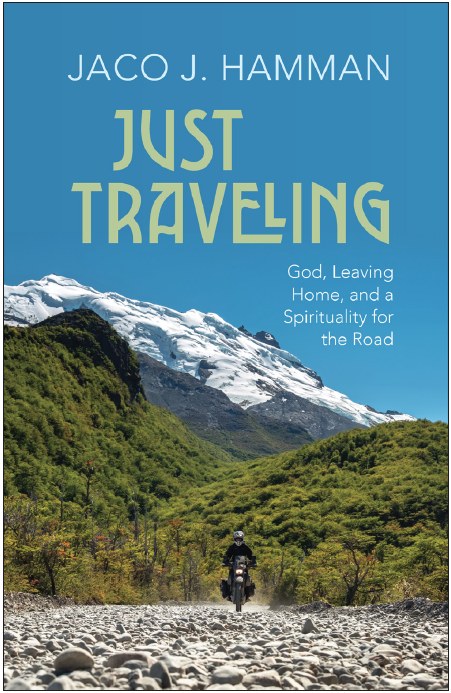
Just Traveling is a book for every all who love traveling and have wondered what is the difference between being an occasional tourist and being a traveler in life.
Just Traveling celebrates overcoming distance and seeking difference as defining human traits. Following the Scriptural witness of God as the Earthroamer, traveling’s liminal qualities are explored through six movements—anticipating, leaving, surrendering, meeting, caring, and returning. To travel is to move at the speed of being present to one’s experiences, bridging distance and difference through acts of care. Drawing on personal experience, the wisdom of theology, anthropology, psychology, philosophy, and cultural studies, I reimagine travel in a welcoming and beautiful, yet also complex and troubled world. Whether leaving home serves one’s wanderlust and curiosity or has personal or spiritual purposes; whether one travels a few miles or cover vast distances, we travel best when we contribute to human flourishing. Care, the compassionate reaching out to someone or something is the practice that allows one to travel differently. The spirituality of roads is filled with hopeful restorative potential. Life is best lived with the Earthroamer.
A brief summary of the book can be found HERE.
As seen in the "Contents" below, the book argues that every travel journey has six phases. Awareness of these phases can deepen one's experience before, during, and after traveling.
From the opening paragraphs of the book:
The practice of traveling has mostly evolved past its French origins in travail, which speaks of bodily and mental labor, exertion, pain, even hardship and suffering. We can plan it all online. Still, contemporary travel sometimes feels like work, all the planning, all the adjusting, and then all the work to catch up on when we return. To travel is being mindful of self, others, also things, recognizing those ways we seek to control and being surprised by the ways we are transformed into likenesses. The “other” is a part of you yet unknown to yourself, a person, a group, a community, a city, all of nature, even God. It comes in the form of dreams, a person met by coincidence, walking along ancient walls, feeling your heart beating as you climb a mountain, or experiencing breathtaking vistas. There is grace that traveling anticipates meeting that-which-is-not-my-known-me, the other. Whether it is our emotional, relational, spiritual or financial anxieties, risk aversion, the general distrust we have toward the world, or skimming across the earth to tick off one more place on our wall map, traveling as a practice that promises transformative experiences is elusive, maybe even under threat. Our definition of traveling overlaps with the definition of tourism as “a social, cultural and economic phenomenon which entails the movement of people to countries or places outside their usual environment for personal or business/professional purposes,” though placing tourism and traveling in a binary relationship is not helpful.
The practice of traveling is an unsolvable paradox: we seek to get away to be present; we want to slow down time, but speed up to get to our destination; we care but in traveling we leave carbon footprints. Traveling is cheeky, even disrespectful. It ignores ones current life, reminding us that it is always a good time to travel. It overlooks social norms of gender, age, ability, and an arbitrary category such as distance. Anyone can travel, even if only in one’s mind, though travel can be a significant challenge for persons with disabilities and look different for persons with no financial resources. Tying traveling to wealth, privilege, and a neoliberal capitalist market economy depends on one’s definition of traveling...
Preface
Acknowledgments
Introduction: Traveling: A Paradoxical Practice
Chapter 1 Anticipating: Planning, expecting, and leaving home
Chapter 2 Surrendering: longing for letting go and renewal
Chapter 3 Meeting: Overcoming distance and difference
Chapter 4 Caring: Redeeming privileged irresponsibility through solidarity
Chapter 5 Returning: Remembering faithfully while feeling blue & being grateful
Conclusion: We are Homo Errabundus: Walking with the Earthroamer
Notes
Bibliography
Index
Just Traveling is
available from
AMAZON.COM